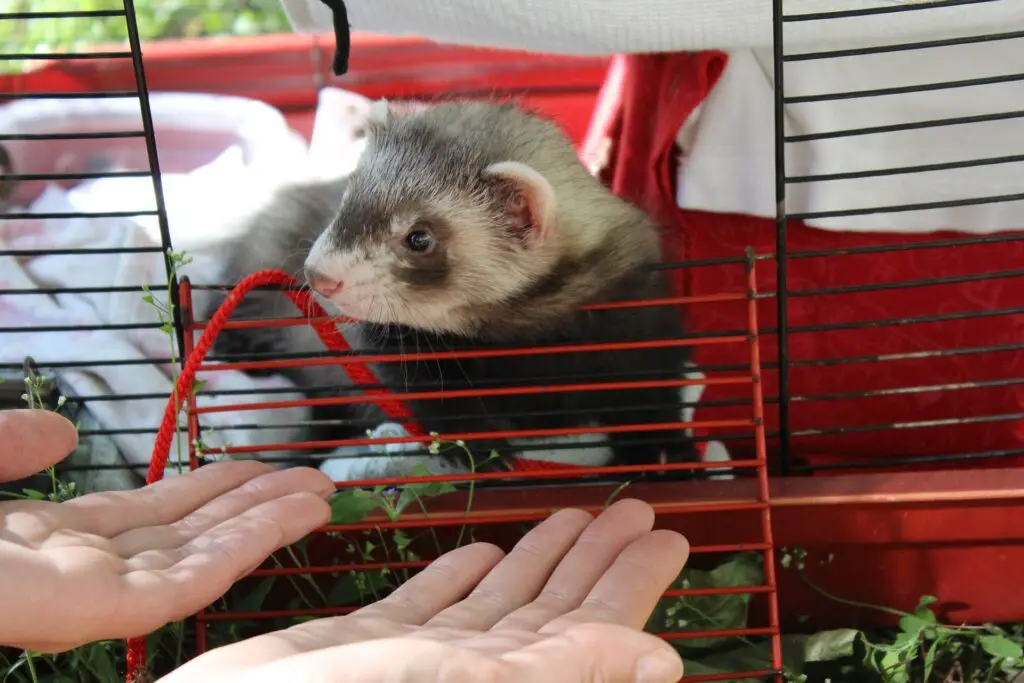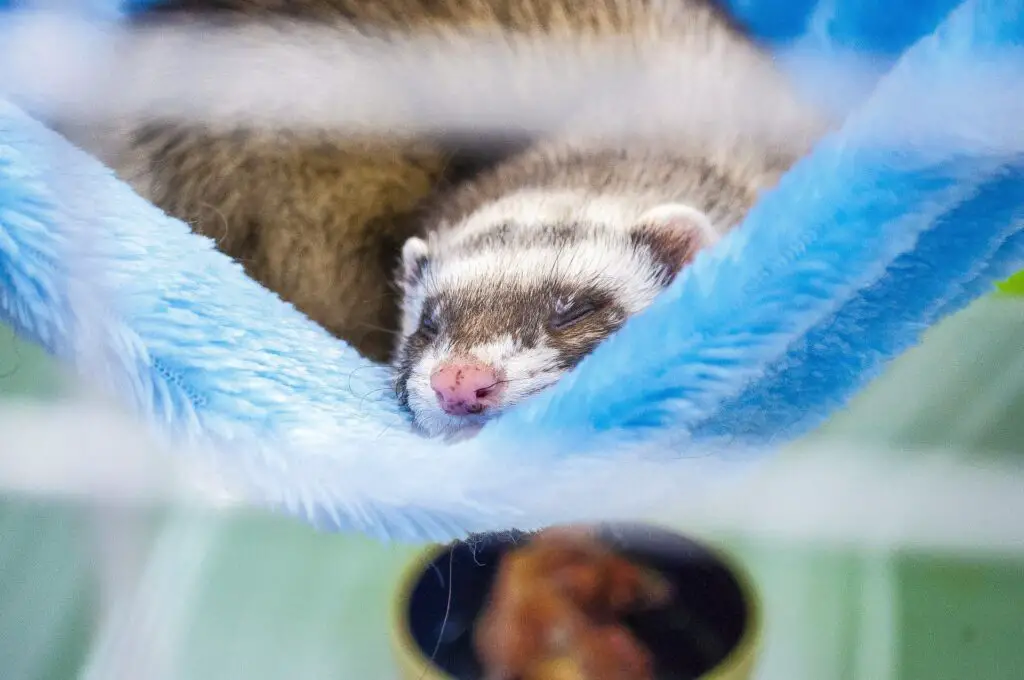Ferrets are delightful additions to any home, but they are also high-maintenance pets. These furry little creatures require a significant amount of time and attention and are not well suited for busy households. Ferrets are also very active and need plenty of space to run and play. If you are considering adding a ferret to your family, be sure to do your research and make sure you are prepared to provide the care they need.
Ferrets, as small mammals, do not need cages per se. However, they need some form of enclosure to keep them safe and secure. This can be a wire mesh cage with a sleeping box or an exercise pen made of plastic or metal netting.

The important thing is that the enclosure is escape-proof, as ferrets are notorious for their ability to squeeze through tiny spaces. So while a cage is not strictly necessary, it is strongly recommended. A cage will provide your ferret with a safe place to sleep and rest, and it will also help to keep them from getting into mischief when you.
Can ferrets free-roam a house?
Ferrets are small, playful pets that can make amazing companions. However, before you bring one home, it’s essential to research and ensure that you’re prepared to provide them with the care they need. As one of the most important considerations, it is imperative that you decide whether or not you’ll allow your ferret to free-roam your house. While some ferret owners choose to keep their pets confined to a cage or a specific room, others will enable them to roam freely. There are pros and cons to both approaches, and the best decision for you will depend on your individual circumstances. If you do decide to let your ferret free-roam, there are a few things you will need to do to ensure their safety. First, you’ll need to ferret-proof your home by removing any potential hazards, such as poisonous plants or small items that could be swallowed. You’ll also need to provide them with a litter box and ensure that all doors and windows are secure. Making your new pet’s environment as safe and loving as possible requires some planning and preparation.
Are ferrets happy in a cage?
Most people would say that keeping any animal in a cage is cruel, and that certainly includes ferrets. Ferrets are very active creatures who need a lot of space to run and explore. They are also very social creatures who need regular contact with other ferrets or with their human caregivers. When kept in a small cage, ferrets quickly become bored and depressed, which can lead to health problems. In fact, many experts believe that owning a ferret in a cage is worse than keeping a dog or cat in one. So if you’re considering getting a ferret as a pet, make sure you have the space and time to give them the life they deserve – not one spent cooped up in a tiny cage. Something along the lines of an enclosure or “ferret-proofed” room would be much more suitable.
How many hours a day should ferret be out of its cages?
As a general rule, ferrets should be out of their cages or enclosures for at least four hours a day. In this way, they will have enough time to spend all their energy in the right places and stay healthy at the same time. Of course, the specific amount of time will vary from ferret to ferret based on their age, health, and energy level. If you are unsure how much time your ferret needs, it is best to err on the side of caution and provide them with plenty of opportunities for exercise. In addition to physical activity, ferrets also need mental stimulation to stay happy and healthy. You should therefore keep your ferret’s mind active by providing your pet with plenty of enrichment activities to keep your ferret’s mind active. By giving your ferret ample time to play and explore, you can help ensure a long and happy life.

Do ferrets need a lot of space?
Ferrets are small mammals that are closely related to weasels and otters. They have long, slender bodies and typically measure between 18 and 24 inches in length, with males being larger than females. Ferrets are very active animals, and they require a large amount of space to run and play. In the wild, ferrets live in underground burrows that can extend for miles. Domestic ferrets cannot dig their burrows, so it is crucial to provide them with an enclosure that is both large and spacious. You should provide your ferrets with at least 10 square feet of floor space each if you have more than one.
Additionally, the enclosure should be outfitted with plenty of toys and hiding spots to keep the ferrets entertained. Ferrets are intelligent animals and quickly become bored if they do not have enough Stimulation. Therefore, by providing them with a spacious enclosure and plenty of toys, you can help to ensure that your ferrets stay happy and healthy.
How to pick the perfect ferret cage?
Picking the perfect ferret cage is essential to keeping your furry friend happy, healthy and safe. To make the best choice, take into account the following:
Size: Ferrets are active, curious creatures who need plenty of space to explore. Ideally, the cage should be at least two feet by three feet and come with multiple levels.
Bar spacing: Ferrets can squeeze through surprisingly small openings, so choosing a cage with bars that are no more than ½ inch apart is essential. Otherwise, you run the risk of your ferret escaping.
Ease of cleaning: Ferrets are notoriously messy, so you’ll want a cage that is easy to clean. Removable pan liners and slide-out trays can make the process much simpler.
Safety: Ferrets are known to chew on just about anything, so choosing a cage made from safe materials that won’t harm your pet if ingested is crucial. Avoid enclosures with sharp edges or corners, as these can injure your ferret.
With these factors in mind, you’ll be well on your way to finding the perfect ferret cage for your new best friend.

How to organise a ferret cage?
A ferret’s cage should provide plenty of room for the animal to move around and play. It should also be high enough to allow the ferret to climb, as they are natural climbers. The cage should have several levels, with ledges, ramps, and tunnels to encourage exercise. In order to prevent injury to the ferret’s feet, it is important that the cage floor is covered with soft materials such as towels or blankets before he enters. The cage should also include a litter box, as ferrets are tidy animals and prefer not to urinate in their living space. When setting up the cage, it is vital to use pet-safe materials that can’t be chewed or ingested by the ferret. Ferrets are curious creatures, so removing any potential hazards from the enclosure is essential. Once the cage is set up, regular cleaning and maintenance will help keep your ferret healthy and happy.